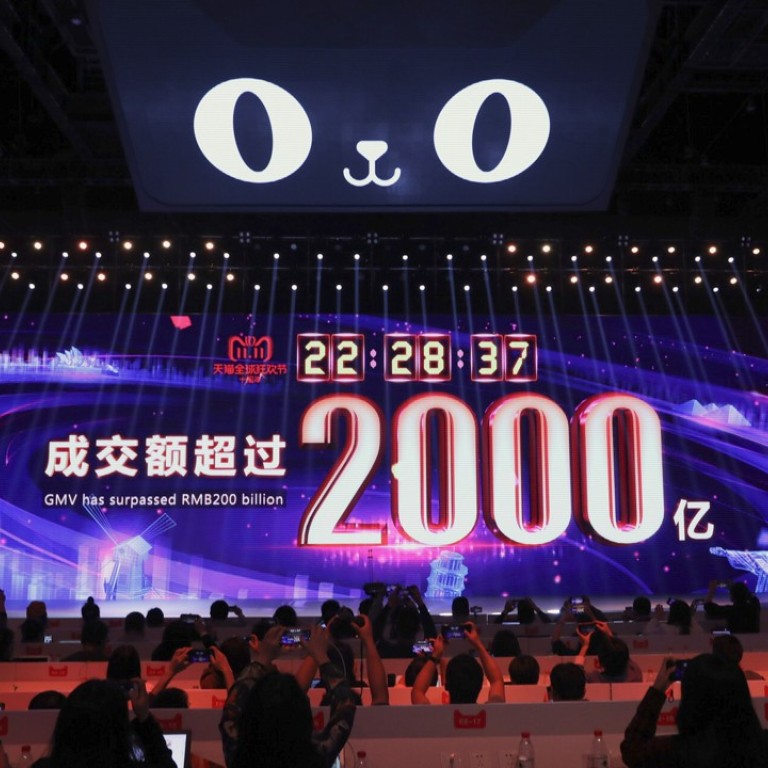
Singles’ Day record signals sales shift for internet generation
- Not only was Alibaba’s online shopping extravaganza a landmark reflection of consumer sentiment in China, but also a test bed for the latest technology
Amid a trade war with the United States that is testing confidence, the annual Singles’ Day 11/11 shopping extravaganza on Sunday was a landmark reflection of consumer sentiment. If people had kept their hands in their pockets and snapped the pattern of annual sales growth in the world’s biggest retail event, the negative implications for confidence would have been self-fulfilling and incalculable. In the event, Alibaba Group’s 24-hour festival surpassed last year’s record of 168.2 billion yuan with eight hours to spare. Well before midnight, consumers had spent more than 200 billion yuan (US$28.7 billion).
They will not get the same range of bargains any time soon, so it remains to be seen how consumption holds up under normal trading conditions, especially if nothing positive comes out of the summit expected in just over a fortnight between presidents Xi Jinping and Donald Trump. Without an end to the trade stand-off with the US sooner rather than later, analysts expect it to hit numbers by the beginning of next year – in just two or three months.
Some revealing pointers to influential trends in consumer power emerged from the spending frenzy. Alibaba, owner of the South China Morning Post, set the scene for them by moving a four-hour performance gala for screaming young fans from the group’s base in Hangzhou to the Mercedes-Benz arena in Shanghai, picking up on the theme of the city’s China International Import Expo of how to boost middle-class demand for quality merchandise.
This symbolised the way the generation known as the “post-90s” in China has come to the fore as a force driving consumer spending. Alibaba Group chief executive Daniel Zhang said those born in the 1990s had become the main consumption power on the mainland, representing an internet generation who lead a very different lifestyle, reflected in the way they select products or brands.
Though they comprise 16 per cent of the population, those aged from 20 to 29 account for about 28 per cent of the 800 million-plus online population, according to the China Internet Network Information Centre. As a result Alibaba’s Singles’ Day has seen rising sales of non-essential items and a wider variety of products.
Globally, other brands, retailers and e-commerce operators joined Singles’ Day through their websites, with e-commerce giant JD.com reporting record sales of more than 100 billion yuan. For Alibaba, it was an opportunity to test developing technologies, such as “new retail” – the integration of online and offline commerce – as well as artificial intelligence and augmented reality. Trade war or not, Singles’ Day is no longer just a commercial event, but an indicator of consumer sentiment and changing consumption demographics and a test bed for technology that keeps ahead of them.

